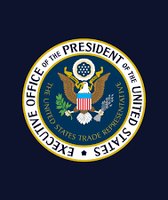Stand up for the facts!
Our only agenda is to publish the truth so you can be an informed participant in democracy.
We need your help.
I would like to contribute

On the campaign trail in 2008, Barack Obama promised more transparency in the White House.
On his first day in office, President Barack Obama pledged to hold himself to "a new standard of openness."
Nearly four years later, he has made significant progress. He released White House visitor logs, created an "ethics hub" for lobbying and ethics reports, and posted a database about how the economic stimulus was spent.
But in other areas, he has succumbed to the gravitational pull of Washington to conduct business behind closed doors. He broke a promise to televise meetings about health care on C-SPAN, he failed to keep his "sunlight before signing" pledge to wait five days before signing legislation and he hasn't created a "contracts and influence" database to disclose how much federal contractors spend on lobbying.
PolitiFact has tracked his transparency promises on the Obameter and found mixed success. Of his 14 core promises, PolitiFact rated four Kept, five Compromise, and five Broken.
Transparency advocates say he made progress but has fallen short of his lofty goals.
"He ran on changing Washington," said John Wonderlich, policy director for the Sunlight Foundation, a pro-transparency group. "In the end, you have to wonder if he succeeded in changing Washington, or Washington changed him."
"I thought we were beginning a transformative administration," said Angela Canterbury, director of public policy at the Project on Government Oversight, a group that investigates government waste and mismanagement. "Instead of that, you’re seeing some nice steps forward in some areas, and some steps backward."
But Obama says he has made great strides in letting people know what their government is doing.
"We've worked to make government more open and responsive than ever before," he said in a speech last fall. "We've been promoting greater disclosure of government information, empowering citizens with new ways to participate in their democracy. We are releasing more data in usable forms on health and safety and the environment, because information is power, and helping people make informed decisions and entrepreneurs turn data into new products, they create new jobs."
'A culture of open government'
On his first day in office, Obama directed federal agencies to make a "presumption in favor of disclosure."
Later in 2009, he issued his open government directive that called for a "culture of open government" where "senior leaders should strive to incorporate the values of transparency, participation, and collaboration into the ongoing work of their agency."
Now, every federal agency has published an open-government action plan and must update its progress in making data available online.
The White House has its own open government website that highlights the administration's plans and philosophy. "For too long, the American people have experienced a culture of secrecy in Washington," it says. To emphasize his commitment, Obama met with open-government groups, a meeting the groups said was unprecedented.
Money for the Alabama Shakespeare festival
Obama's biggest success in transparency can be measured in bytes.
He's posted hundreds of databases that had never been easy to access, released detailed records about the economic stimulus and pulled together ethics reports that make it easier for people to look up information about lobbyists, federal candidates and even White House meetings.
"The Obama administration has done a better job of making statistics, figures, and data of government spending available," said Mark Rumold, an open-government legal fellow at the Electronic Frontier Foundation, a digital rights advocacy group that specializes in the Freedom of Information Act.
The Recovery.gov database provides details on thousands of projects that got federal money from the stimulus. For example, it shows that $37,000 went to the Alabama Shakespeare Festival and $44,510 paid for student interns at the National Key Deer Refuge in the lower Florida Keys.
Another site, USASpending.gov, which tracks federal contracts, shows that that Boeing received $17.3 billion in federal contracts this year, while ForeignAssistance.gov, a database on federal investments abroad, shows the government spent nearly $41 million on malaria treatment in Tanzania.
Obama's willingness to publish so much data is remarkable because it has provided ammunition for his critics, who have cited selective projects to portray the stimulus as ineffective and wasteful. (A typical attack: that Democrats voted "to study exotic ants in Africa," a claim PolitiFact rated False.)
Obama has also been the first president to post White House visitor logs. Although there are some exceptions, such as personal visits and meetings about Supreme Court nominations, they reveal everything from lobbyists who attend meetings in the West Wing to people who are invited to the White House bowling alley.
On PolitiFact's Obameter, he's earned a Promise Kept for centralizing ethics and lobbying information for voters, releasing presidential records and creating a national declassification center.
"From the day he took office, the President committed his Administration to work towards unprecedented openness in government," said White House spokesman Eric Schultz. "Over the past three years, Federal agencies have gone to great efforts to make government more transparent and more accessible than ever."
Behind closed doors
Despite his progress at posting data, Obama hasn't lived up to his rhetoric about opening meetings and disclosing White House communications.
One of his most celebrated transparency promises was a pledge to open his meetings about health care reform:
"I'm going to have all the negotiations around a big table," he vowed at a 2008 campaign event. "We'll have doctors and nurses and hospital administrators. Insurance companies, drug companies -- they'll get a seat at the table, they just won't be able to buy every chair. But what we will do is, we'll have the negotiations televised on C-SPAN."
But it was business as usual. The discussions with insurance companies, drug companies and other special interests were conducted behind closed doors, which earned Obama a Promise Broken.
He also vowed openness in rulemaking and a more effective response on Freedom of Information Act requests. But transparency advocates say he fell short on both.
He said he would get agency heads to make the federal rulemaking process open to the public, which earned a Compromise on our Obameter because new policies are in place, but the process remains opaque.
Likewise, pro-transparency groups have criticized the administration’s refusal to release some records through the Freedom of Information Act -- particularly on national security issues.
Obama earned another Compromise for his promise to release White House communications about rulemaking. The visitor logs have been released, but other communications haven't.
For whistleblowers in the federal government, he said he would strengthen their legal protections and get them access to jury trials, so they would feel comfortable calling out cases of waste, fraud and abuse in government. So far, his efforts haven’t resulted in a new law, another Compromise on our Obameter.
Expectations vs. reality
When Obama made transparency pronouncements on his first day in office, it sent a message to open-government groups.
"I don’t think he picked day one just willy nilly. I think he did care about this and was a true believer," said Nate Jones, Freedom of Information Act coordinator of the National Security Archive, a group that compiles security documents.
But by late in 2010, Wonderlich noticed that the White House stopped talking in the future tense about ways it would open the government. It shifted to the past tense. It became, "If you look at our record..."
Did Obama deliver on his transparency promises? PolitiFact asked one of the five pro-transparency groups that gave him an Open Government award last year for his early policy initiatives.
"There is always a risk in giving an award, especially when it is aspirational," said Canterbury, of the Project on Government Oversight. "At the time, he deserved it for his commitment. Whether he’ll fulfill that commitment and be worthy of another award is questionable. I think a lot is going to depend on whether we see a second administration."
Our Sources
Interview with Angela Canterbury, public policy director for the Project on Government Oversight, July 11, 2012
Interview with John Wonderlich, policy director for the Sunlight Foundation, July 11, 2012
Interview with Micah Sifry, author of WikiLeaks and the Age of Transparency, July 11, 2012
Email interview with Beth Noveck, former White House chief technology officer, July 11, 2012
Interview with Nate Jones, Freedom of Information Act coordinator for the National Security Archive, July 10, 2012
Interview Mark Rumold, an open government legal fellow at the Electronic Frontier Foundation, July 10, 2012
Interview with Patrice McDermott, executive director of OpentheGovernment.org, July 10, 2012
Email interview with Eric Schultz, White House spokesman, July 10, 2012





























